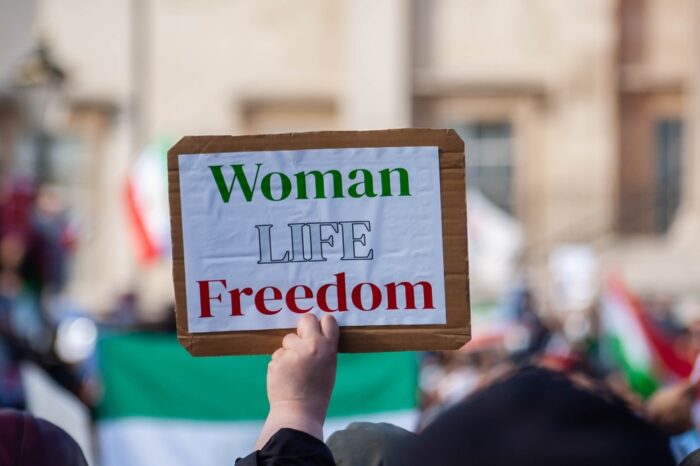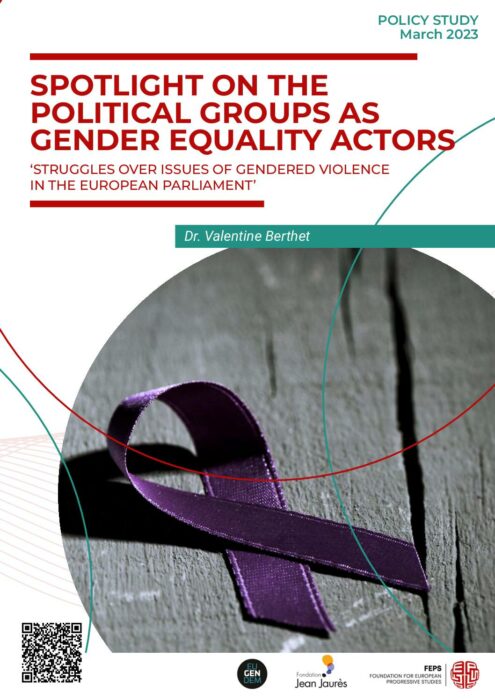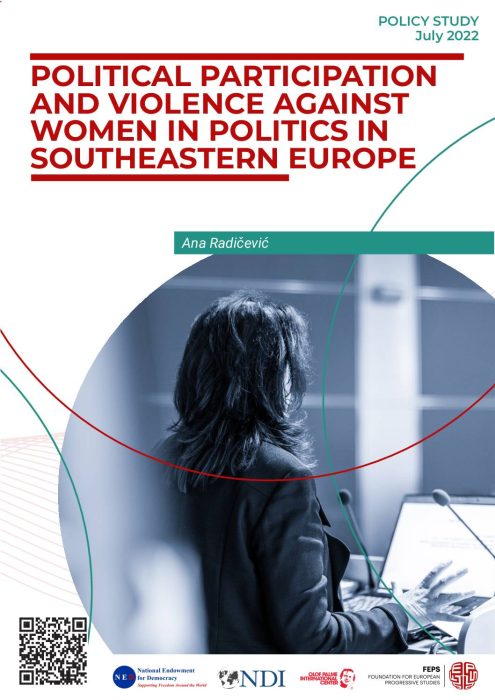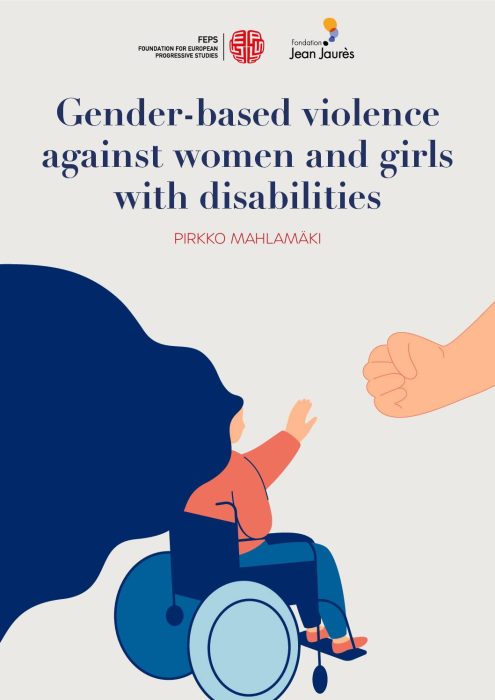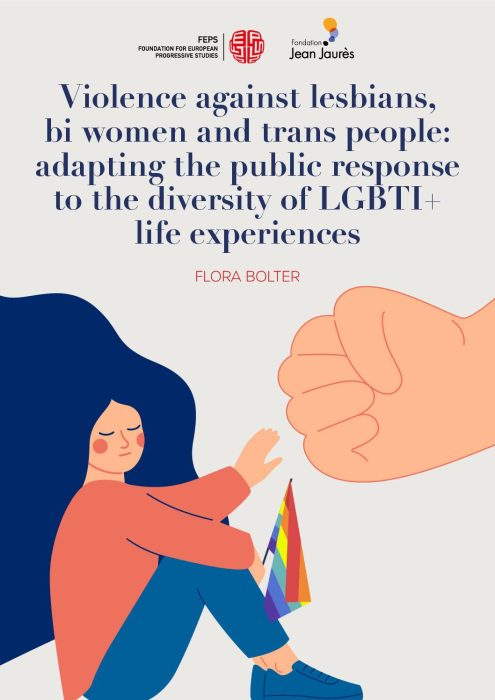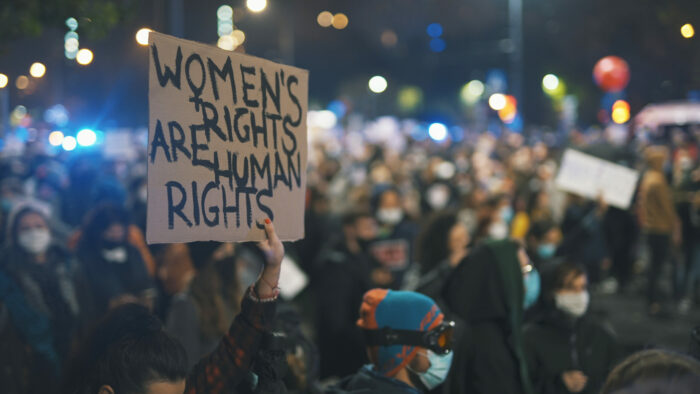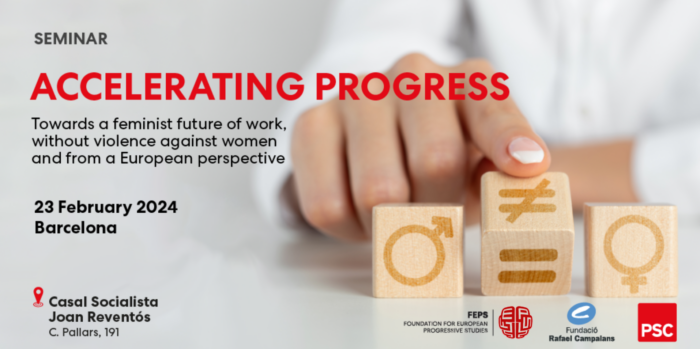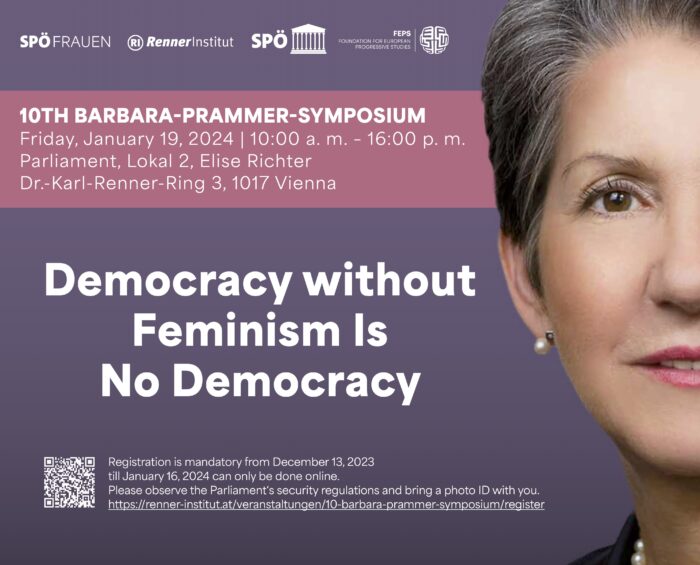 On the occasion of the 25th of November marking the International Day for the Elimination of Violence Against Women, the Foundation for European Progressive Studies (FEPS) and the Fondation Jean Jaurès join forces to publish a series of publications authored by gender equality experts and civil society representatives to shed light on specific dimensions of gender-based violence and to foster a debate on how to fight it.
On the occasion of the 25th of November marking the International Day for the Elimination of Violence Against Women, the Foundation for European Progressive Studies (FEPS) and the Fondation Jean Jaurès join forces to publish a series of publications authored by gender equality experts and civil society representatives to shed light on specific dimensions of gender-based violence and to foster a debate on how to fight it.
1 in 5 women have been victim of maltreatment during childhood and 1 in 3 women have suffered physical or sexual violence at least once in their lifetime (according to UN Women and WHO). Gender-based violence is both the cause and result of gender inequality.
This constant and blatant form of discrimination women face everyday and everywhere across the world regardless of their background not only concerns gender-based violence such as domestic violence, rape or femicides but also sexual and sexist harassment at school, at work, in public spaces and more and more in online spaces, following victims at any time. This scourge has been severely exacerbated due to the COVID-19 pandemic leading to a dangerous surge of a longstanding and deeply rooted problem.
***
#1 Femicides: naming the phenomenon to better combat it. In the very first article of this #StopGBV Publication Series, Margot Giancinti, Ph.D. researcher in political science in the École Normale Supérieure of Lyon and temporary lecturer and research assistant in Université Lyon-2, looks back at the history of the concept of femicide in the world and the need to name femicides to better fight against sexual and sexist violence.of its legal recognition.
#2 Sexist and sexual violence in the workplace: lessons for public policies. In the publication co-authored by Sylvie Cromer (sociologist) and Adeline Raymond (social and occupational psychologist), the focus is placed on sexual and sexist violence at work.
#3 Progressive pathways to a Europe free from violence against women: Mapping the EU's institutional and policy maze. In this third article part of this FEPS-Fondation Jean Jaurès #StopGBV Publication Series, Hannah Manzur (PhD candidate researching gender, violence and Brexit, City, University of London) offers a comprehensive overview on the EU legislative and policy framework available to tackle violence against women and girls whislt identifying the main opportunities, gaps and challenges on the path towards a Europe free from violence.
#4 Naming it, fighting it: a multi-level analysis of digital gender-based violence: In this article, Chiara De Santis and Lilia Giugni, co-founders of GenPol (Gender & Policy Insights), a think tank specialized in gender equality, focus on digital gender-based violence, their scope and existing EU legal frameworks to combat them. The authors also provide policy recommendations on how to step up the fight for the elimination of online forms of gender-based violence.
#5 Violence against lesbians, bi women and trans people: adapting the public response to the diversity of LGBTI+ life experiences: In order to showcase the breath of gender-based violence and its link to gendered inequalities, FEPS and Fondation Jean Jaurès join forces for this series of publications on the fight to eliminate sexist and sexual violence. In this article, Flora Bolter (co-director of the LGBTI+ observatory of Foundation Jean Jaurès, political scientist and activist) focuses on the gendered nature of LB-phobic violence and violence against trans and intersex people. She offers an overview on their scope in France and in Europe before concluding with the necessary public response to effectively combat them.
#6 Gender-based violence against women and girls with disabilities: In this article, Pirkko Mahlamäki (Board Member and Member of the Observatory on Violence Against Women, European Women's Lobby) focuses on the various forms of violence against women and girls with disabilities. She offers an overview of their scope and the international frameworks in place to combat them before concluding with concrete policy recommendations to tackle this multi-layered reality.

 On the occasion of the 25th of November marking the International Day for the Elimination of Violence Against Women, the Foundation for European Progressive Studies (FEPS) and the Fondation Jean Jaurès join forces to publish a series of publications authored by gender equality experts and civil society representatives to shed light on specific dimensions of gender-based violence and to foster a debate on how to fight it.
On the occasion of the 25th of November marking the International Day for the Elimination of Violence Against Women, the Foundation for European Progressive Studies (FEPS) and the Fondation Jean Jaurès join forces to publish a series of publications authored by gender equality experts and civil society representatives to shed light on specific dimensions of gender-based violence and to foster a debate on how to fight it.